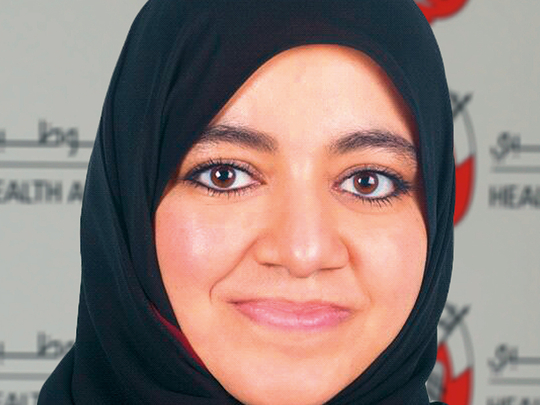
Abu Dhabi: Cardiovascular diseases are still the leading cause of death in the emirate of Abu Dhabi, accounting for 37 per cent of all mortalities in the previous year (2016), the Department of Health — Abu Dhabi announced in a statement issued on Monday.
In addition, health officials expect that lifestyle disease like diabetes, cardiovascular conditions and cancer will continue to place a burden on outpatient health services, leading to an aggressive growth in demand.
“Keeping this threat in mind, we are working to reduce, or at least stabilise, the rate of childhood obesity. As announced at the first Abu Dhabi Childhood Obesity Forum earlier this month, we will soon launch or intensify up to 50 initiatives that aim to reduce the average body mass index of children by 15 per cent by 2020,” Dr Omniyat Al Hajeri, director of public health at the Department, told Gulf News.
“In addition to encouraging active lifestyles and better food choices, we also hope to make healthier food options more accessible and affordable,” she added.
Another target for the health sector regulator in the coming year is limiting the number of falls, as these result in a whopping 40 per cent of non-fatal injuries.
“We want to increase our community outreach initiatives, including a campaign and measures to reduce the number and impact of falls,” Dr Al Hajeri added.
Injuries continued to remain the second leading cause of death, including traffic-related injuries, and were responsible for 20 per cent of all fatalities. Cancers, on the other hand, accounted for 15 per cent of mortalities.
To meet the increasing demand for health care, the total number of health care facilities in Abu Dhabi has also increased. There are now 2,455 facilities, including 56 hospitals, up from 47 hospitals in the previous year, along with 1,324 medical centres and 750 pharmacies. The number of doctors also increased from 8,618 to 8,983, while the number of nurses nearly doubled from 12,290 to 24,915.
“The emirate’s health sector has witnessed a remarkable growth in quality and quantity over the past few years. Today, the sector enters a new developmental phase, focusing on quality and innovation, to improve medical outcomes and increase patient satisfaction,” said Shaikh Abdulla Al Hamed, chairman of the Department.
He was referring to the pay-for-quality scheme launched by the Department this year, which links payments made by insurance companies to health care facilities based on the level of services and standard of care they provide. As a consequence, clinics and hospitals that consistently fail to meet minimum standards could have their funding cut.
According to the Department, 40 companies now provide health insurance to 3.1 million residents, and 99.3 per cent of all health insurance claims result from outpatient services.
Facts and figures
Fatalities
37% from cardiovascular disease
20% from injuries, including those from road traffic incidents
15% from cancers
Non-fatal injuries
40% from falls
17.2% from cuts
7.2% from road traffic incidents
Life expectancy
76 years for men
79 years for women
Health care facilities
2,455 in total
56 hospitals
1,324 medical centres and clinics
750 pharmacies
8,983 doctors
1,734 dentists
24,915 nurses
7,767 allied health professionals
3,348 pharmacists












